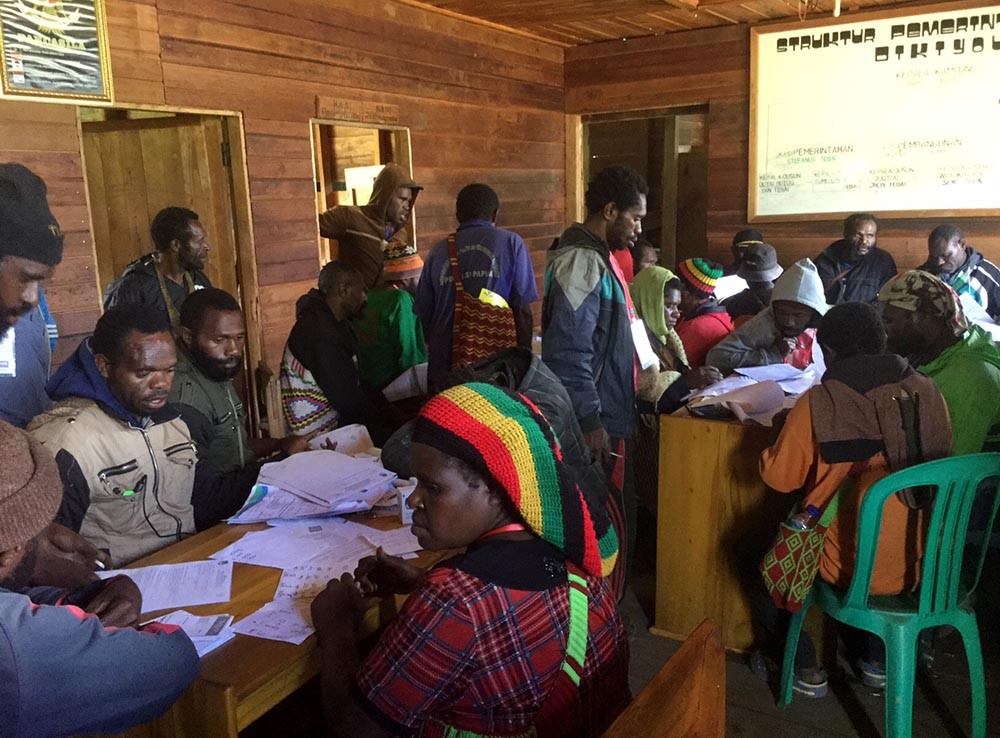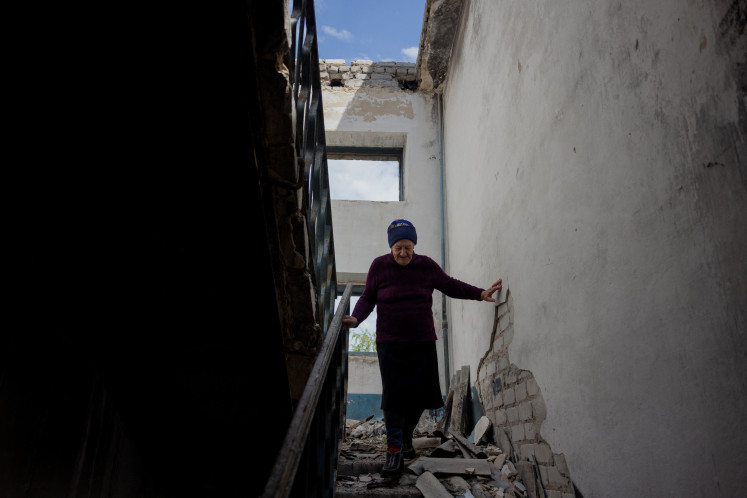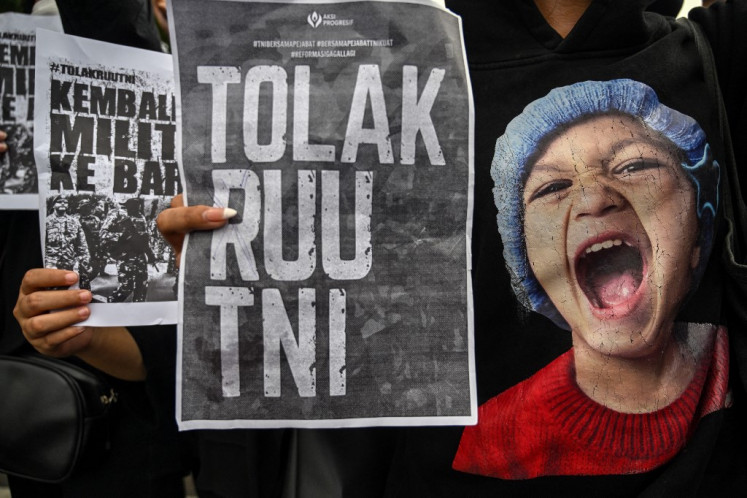No to 'noken'
In endorsing that voting system — called noken — the local poll body has sacrificed the democratic principle of one man one vote.
Change text size
Gift Premium Articles
to Anyone
 Cast your vote! People wait for votes to be counted in Dikiyouwa village, Kamu district, Dogiyai, Papua, during the regional election in February last year. (JP/Nethy Dharma Somba)
Cast your vote! People wait for votes to be counted in Dikiyouwa village, Kamu district, Dogiyai, Papua, during the regional election in February last year. (JP/Nethy Dharma Somba)
F
or the fourth time since 2004, communities in the remote highlands of Papua will cast their ballots in the gubernatorial election through representatives they appoint by agreement. In endorsing that voting system — called noken — the local poll body has sacrificed the democratic principle of one man one vote. More than that, it shows that, over the last 14 years, the state and other stakeholders have barely taken any efforts to help democracy flourish there.
Only in 2009 the Constitutional Court ruled that the traditional balloting system, named after the Papuan traditional woven bag, was legitimate, considering the difficult terrain that would make it difficult, if not impossible, for eligible voters in far-flung isolated regions to exercise their voting right. On the other hand the General Elections Commission (KPU) lacked the human resources and facilities to ensure the whole election process ran on time.
Noken was, therefore, accepted as a win-win, shortterm solution. Many also hailed it then as local wisdom in Indonesian democracy.
Since then, however, Papua has made progress that to some extent renders the traditional voting system no longer relevant. The government has given a boost to infrastructure development to lift many parts of Papua out of isolation. New autonomous regions have been created to accelerate public service delivery. More people have obtained access to education too, despite imperfections.
Indonesia transformed itself into a full-fledged democracy when it replaced indirect elections with direct elections for both legislature members and the president and vice president in 2004. One year later, direct elections for governors, mayors and regents were introduced.
Democracy has evolved in the country, except in the Papuan regions, where noken remains in place until today. For Papua’s gubernatorial election later this month, the traditional voting mechanism will be used in villages in 13 regencies across the province. There is a possibility the system will be maintained in the simultaneous legislative and presidential elections in April next year.
Many have called for an end to the noken system because of its vulnerability to fraud, which undermines democracy. The practice gives room to vote rigging in favor of certain parties or candidates, particularly in the ballot counting process. The pair of Prabowo Subianto and Hatta Radjasa partly blamed the noken for their defeat in the 2014 presidential election. Other tickets contesting regional elections in Papua will follow in their footsteps, if they lose.
The latest study by the Jakarta-based Institute for Policy Analysis of Conflict (IPAC) confirmed the vulnerability of noken to violence. Worse, four of seven regencies that will hold elections this month are deemed restive areas even at times when there are no electoral events.
Unsurprisingly, the IPAC and other civil society organizations have recommended the gradual elimination of the proxy voting system, as many Papuans themselves have rejected the practice. They are right, because so long as noken is preserved, Papua will continue to live under the stigma of backwardness, which therefore should come under Jakarta’s guidance and protection.
For a better Papua, the noken system is no longer needed.









